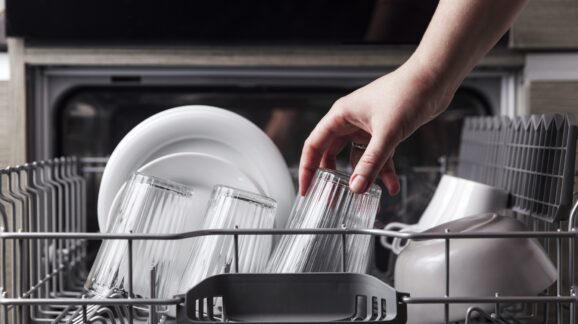Federal courts to the rescue on bad appliance regulations?

Photo Credit: Getty
The US Supreme Court recently heard a case that could impact how much deference judges give to regulatory agencies. To be certain, any relief from the so-called Chevron doctrine and its high level of deference would be welcomed. But even before the Supreme Court decision is out, some federal judges are already tiring of being handed a junk analysis from regulators and expected to rubber stamp it. That certainly seems to be the case with three successful legal challenges to bad appliance regulations.
Most recently, in Louisiana v. US Department of Energy, the US Court of the Appeals for the Fifth Circuit invalidated a Biden Department of Energy (DOE) final rule on dishwashers. The issue dates back to 2018 when the Competitive Enterprise Institute (CEI) petitioned DOE to address the fact that its existing energy and water efficiency standard for dishwashers increased the time it takes to complete a load of dishes from around an hour to two or more. In 2020, the Trump administration DOE granted the petition, which would have eventually led to a new standard achievable by models that can finish a load in an hour or less. Unfortunately, in 2021 the Biden DOE came in an shut down the process of bringing back faster dishwashers. The legal challenge, brought by 12 state attorneys general and for which CEI co-authored an amicus brief, focused on this Biden administration action.
The decision reads as if the judges all hate their dishwashers. The court was completely unconvinced of the agency’s rationale for dodging the problems with its current dishwasher standard, even going so far as to say that it “borders on the frivolous.” Among other things, the court noted that the existing standard leads to more “energy-and-water-wasting rewashing, prewashing, and handwashing,” thus undercutting the ostensible purpose of the regulation. It also made the point that DOE only has the authority to target energy use in dishwashers, but not water use.
The court remanded the issue back to DOE. The agency must either restart the process of promulgating a rule allowing one-hour dishwashers or at least come up with a more convincing rationale for not doing so.
Another federal court was equally unimpressed with DOE’s reasoning behind a new DOE energy efficiency regulation for commercial boilers – twice in fact. The US Court of Appeals for the District of Columbia initially remanded the rule back to the agency. Rather than genuinely address any problems identified by the court, DOE finalized the same standard while merely doing a little window dressing to its analysis. When challenged again in court in American Public Gas Assn. v. U.S. Department of Energy, the judges were just as unconvinced with the agency’s second line of reasoning, and invalidated the rule.
The agency analysis assumes that building owners randomly choose boilers rather than select the one suited to their individual needs. Doing so allows DOE to claim significantly greater benefits from the standard by claiming that it helps protect building owners from their uninformed choices. But the court didn’t buy this nonsense, both the first time as well as the second.
Finally, in California Restaurant Assn. v. City of Berkeley, the US Court of Appeals for the 9th Circuit struck down the city of Berkeley California’s ban on natural gas hookups in new construction. The case centered around the Energy Policy and Conservation Act of 1975 (EPCA), the same federal statute under which DOE sets the appliance standards discussed previously. EPCA preempts state and local governments from setting their own standards concerning energy efficiency or energy use of appliances. The restaurant owners argued, quite logically, that banning natural gas hookups would effectively ban natural gas stoves, furnaces, and water heaters, and thus violates the preemption provisions in EPCA. Berkeley, along with the Biden Administration which filed a brief in Berkeley’s favor, claimed that EPCA preemption applies narrowly to the direct regulation of appliances and not the infrastructure needed to supply them. Luckily, the court was having none of it, holding that “Berkeley can’t bypass preemption by banning natural gas piping within buildings rather than banning natural gas products themselves.”
Granted, it would be very helpful if the Supreme Court threw Chevron deference onto the scrapheap of legal history. But it is also good news that a number of federal judges are willing to take a commonsense look at these weak agency justifications for appliance regulations and, on their own, refuse to go along with them.